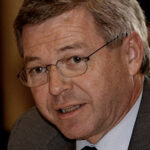Hargeisa, February 15th, 2012 – The G40 group, formed in 2009 as part of the Club de Madrid’s project, “Women’s Leadership for Peace and Security,” is comprised of representatives from women’s organizations and defenders of human rights. These women come from seven countries in the Horn of Africa: Djibouti, Eritrea, Ethiopia, Somaliland, South Central and Puntland (Somalia), Sudan, South Sudan and Uganda. Their goal is to work together to promote peace and security at a regional level.
The recommendations of the G40 summarize the strategic interests of women in Somaliland, and are directed towards the Somaliland authorities, religious leaders, the regional African Intergovernmental Authority on Development (IGAD), the international community and civil society. Recommendations included request for governmental gender-sensitive budgeting and a quota of 25 percent female representation in government structures and parliament, as well as committees of reconciliation and peace negotiations. The G40 recognizes the valuable contribution of religious and traditional leaders in the peace process and have urged these leaders to defend women’s rights and recognize the state of women´s rights in Somali culture and in Islam. Also discussed and included were G40 Recommendations recognizing the need to raise awareness of the negative effects of piracy and the consumption of chat, and highlighting the importance of maintaining a neutral stance on clan issues while peace negotiations are in process.
The Vice President of the government of Somaliland, the Speaker of the House, the Minister of Labor and Social Affairs, the Ministers of Planning and Religion, the First Lady and the mayors of neighboring cities attended the round table discussion led by former Prime Minister Kjell Magne Bondevik. The discussions highlighted the importance of stability and peace for the maintenance of developmental processes and women’s roles as active agents in society.
Although considered a de facto State, not yet recognized by the international community, Somaliland has used a democratic process since 1991, which is a model of transition from the traditional clan system to a democratic, multiparty, and bicameral system. Since the last presidential election of 2010, the region has maintained stability and participatory development processes, making it stand out from neighboring regions. These trends are partly due to the high degree of government accountability to citizens, which stems from the purely local tax collecting system.
Nevertheless, this society still faces major challenges such as the absence of international recognition and foreign investment, high unemployment, low salaries for civil servants that could lead to an inefficient and corrupt system, lack of infrastructure, piracy and exploitation of resources, border conflicts and disputes of land ownership and violent extremism, which seem to affect all of Somalia´s regions.
The Club de Madrid´s project-sponsored trip to Hargeisa, titled “Women’s Leadership for Peace and Security,” was the ninth mission to take place since the project began in 2009 in the Greater Horn of Africa and in the Andean region. The mission was launched with support from the Australian (AusAID) and Belgian Governments, in conjunction with the Institute for Security Studies (ISS, South Africa) and Isis-Women International Cross-Cultural Exchange (Isis-WICCE Uganda). Former Prime Minister Kjell Magne Bondevik reiterated the project´s goals to those in attendance, emphasizing the need to encourage the participation of women and to recognize women’s contribution in the political process of peace building in the context of the international commitment to Resolution 1325 of the United Nations Security Council.

